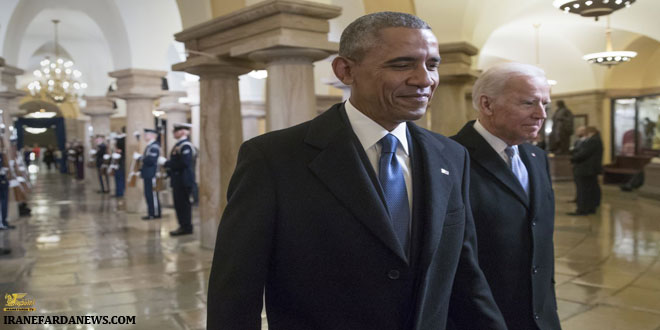
His prison swap was a bigger gift to Iran than he ever let on.
The Obama White House’s high-profile prisoner swap with Iran in 2016 was a much bigger gift to Iran than the administration ever let on.
That’s the takeaway from an investigative report from Politico published Monday, which details how the Obama administration deliberately obscured and downplayed the national security threat posed by the seven Iranian-born prisoners and 14 fugitives freed as part of a deal to bring back five American prisoners held captive in Iran.
A number of them were involved in helping Iran procure lethal technology for its military, and at least one of them was accused of helping Iran procure critical equipment for the very nuclear programs the Obama administration was trying to halt with the nuclear deal it struck the year before, according to the article.
If fully substantiated, the report would underscore that the White House was willing to go to extraordinary lengths in order to keep Iran on board with the nuclear deal — so far, in fact, that it was willing to undermine its own efforts to track and crack down on Iranian weapons programs. It would also mean the White House was willing to mislead the American public in order to do so.
The prisoners Obama sent back to Iran weren’t random businessmen
When the Obama administration announced in January 2016 that it was dropping charges against seven Iranian-born prisoners as part of the swap, the president and other senior officials described them as “civilians” and “businessmen.” The administration said the individuals “were not charged with terrorism or any violent offenses,” and were merely charged with things like violating sanctions or the trade embargo against Iran.
But the new Politico report reveals that the administration’s portrayal of these individuals, while perhaps technically accurate in a very narrow sense (they were civilians, and they weren’t charged with terrorism offenses), gave a deliberately misleading picture of the kind of activity these people were accused of being involved in.
Indeed, in the eyes of Obama’s own Justice Department, many of them were engaged in activities that were directly at odds with the administration’s concerns about Iran’s weapons programs:
Three allegedly were part of an illegal procurement network supplying Iran with U.S.-made microelectronics with applications in surface-to-air and cruise missiles like the kind Tehran test-fired recently, prompting a still-escalating exchange of threats with the Trump administration. Another was serving an eight-year sentence for conspiring to supply Iran with satellite technology and hardware. As part of the deal, U.S. officials even dropped their demand for $10 million that a jury said the aerospace engineer illegally received from Tehran.
Several of the 14 fugitives for whom the administration dropped charges and arrest warrants were accused of similar activities. The Politico article reports that three of them allegedly tried to lease US aircraft for an Iranian airline that allegedly supported Hezbollah, which the US considers a terrorist organization.
Another was believed to have been part of a smuggling ring that illegally imported US-made assault rifles into Iran, and yet another was accused of helping procure “high-tech components for an especially deadly type of IED [improvised explosive device] used by Shiite militias to kill hundreds of American troops in Iraq.”
Just so we’re clear: The Obama administration described a person who had allegedly helped procure components for IEDs that would be used to kill Americans in Iraq as a “businessman.” That’s like describing Colombian drug lord Pablo Escobar as an “entrepreneur”: It’s technically accurate, but it’s also a striking omission of critically important details.
The most noteworthy fugitive on the list was Seyed Abolfazl Shahab Jamili, who was accused of being “part of a conspiracy that from 2005 to 2012 procured thousands of parts with nuclear applications for Iran via China” which “included hundreds of U.S.-made sensors for the uranium enrichment centrifuges in Iran.”
What’s important to note here is that Iran’s progress developing those centrifuges — the ones Jamili was allegedly helping procure parts for — is part of what prompted the Obama administration to try to negotiate the nuclear deal in the first place. In other words, its prisoner swap undermined its own nonproliferation objectives.
“This has erased literally years — many years — of hard work, and important cases that can be used to build toward other cases and even bigger players in Iran’s nuclear and conventional weapons programs,” former Justice Department counterproliferation prosecutor David Hall told Politico.
When Obama forged the nuclear deal with Iran in 2015, he agreed to lift crippling economic sanctions in exchange for Iran shipping out a large chunk of its enriched uranium and taking thousands of centrifuges offline. But the administration maintained that it still had the right to penalize Iran for developing ballistic missiles and cruise missiles, and illegally obtaining materials for its military. The new information about the swap, however, suggests those other initiatives were not that big of a priority for the administration in light of the deal.
Obama was well aware that much of his personal legacy hinged on the outcome of the Iran nuclear deal. The Politico article shows just how far he was willing to go to cement it.
 khalijefars News, Blogs, Art and Community
khalijefars News, Blogs, Art and Community








